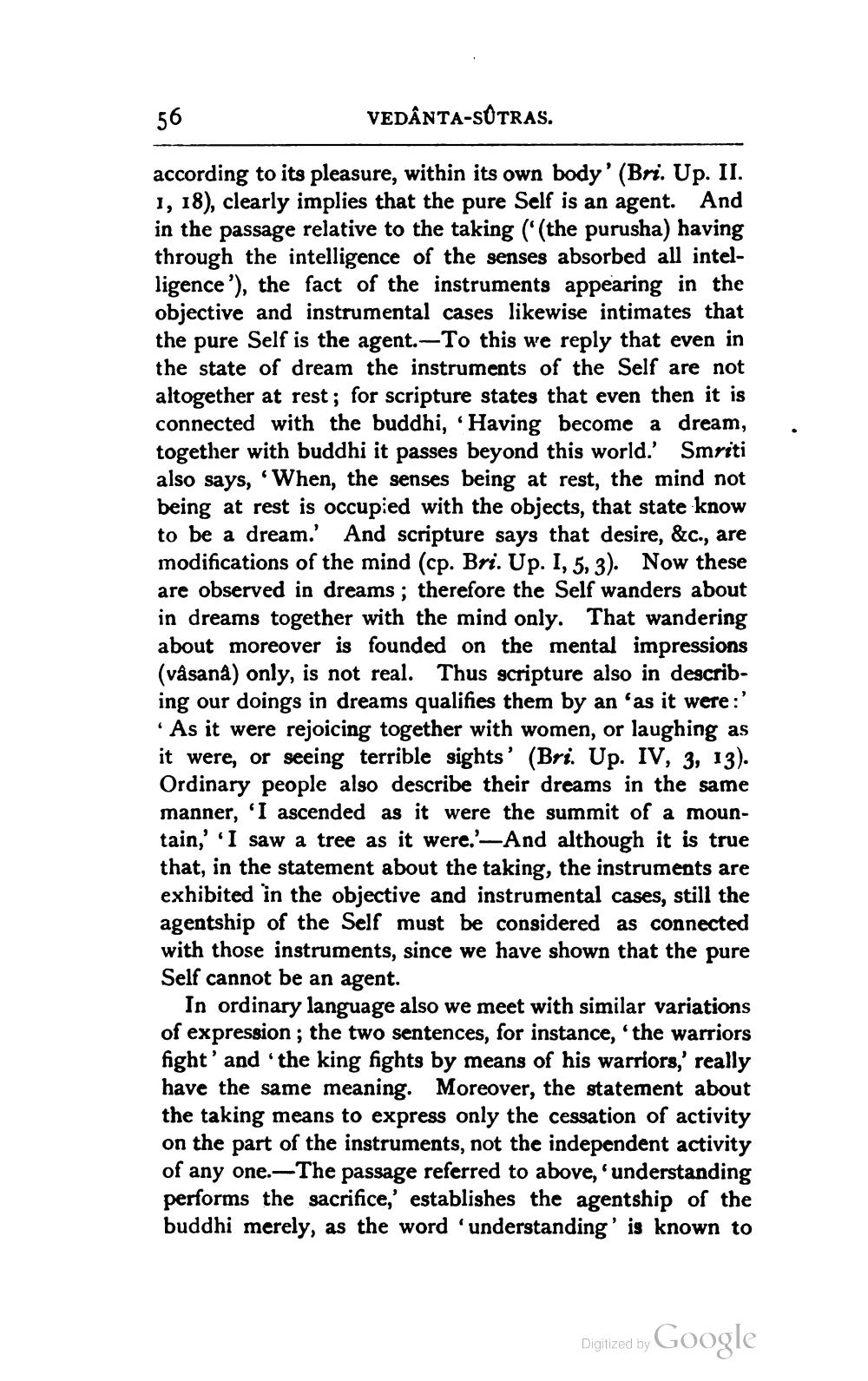________________
56
VEDÂNTA-SOTRAS.
according to its pleasure, within its own body' (Bri. Up. II. 1, 18), clearly implies that the pure Self is an agent. And in the passage relative to the taking ('(the purusha) having through the intelligence of the senses absorbed all intelligence'), the fact of the instruments appearing in the objective and instrumental cases likewise intimates that the pure Self is the agent.—To this we reply that even in the state of dream the instruments of the Self are not altogether at rest; for scripture states that even then it is connected with the buddhi, Having become a dream, together with buddhi it passes beyond this world.' Smriti also says, 'When, the senses being at rest, the mind not being at rest is occupied with the objects, that state know to be a dream. And scripture says that desire, &c., are modifications of the mind (cp. Bri. Up. I, 5, 3). Now these are observed in dreams; therefore the Self wanders about in dreams together with the mind only. That wandering about moreover is founded on the mental impressions (vâsana) only, is not real. Thus scripture also in describing our doings in dreams qualifies them by an 'as it were :' . As it were rejoicing together with women, or laughing as it were, or seeing terrible sights' (Bri. Up. IV, 3, 13). Ordinary people also describe their dreams in the same manner, 'I ascended as it were the summit of a mountain,' 'I saw a tree as it were.'-And although it is true that, in the statement about the taking, the instruments are exhibited in the objective and instrumental cases, still the agentship of the Self must be considered as connected with those instruments, since we have shown that the pure Self cannot be an agent.
In ordinary language also we meet with similar variations of expression; the two sentences, for instance, the warriors fight' and 'the king fights by means of his warriors,' really have the same meaning. Moreover, the statement about the taking means to express only the cessation of activity on the part of the instruments, not the independent activity of any one.—The passage referred to above, understanding performs the sacrifice,' establishes the agentship of the buddhi merely, as the word 'understanding' is known to
Digitized by
Digilzed by Google




